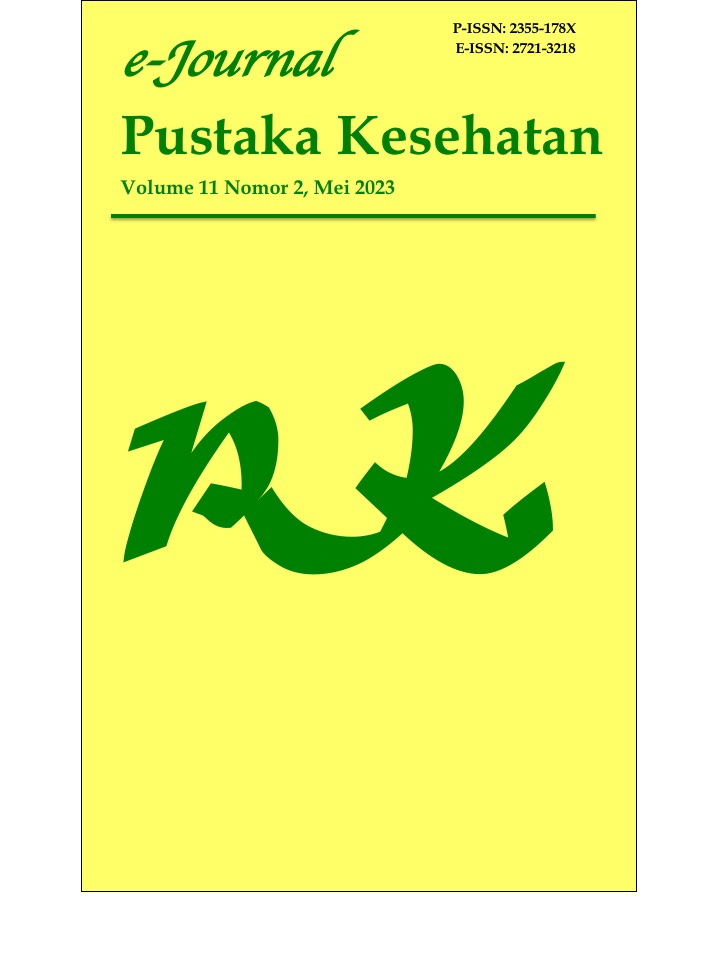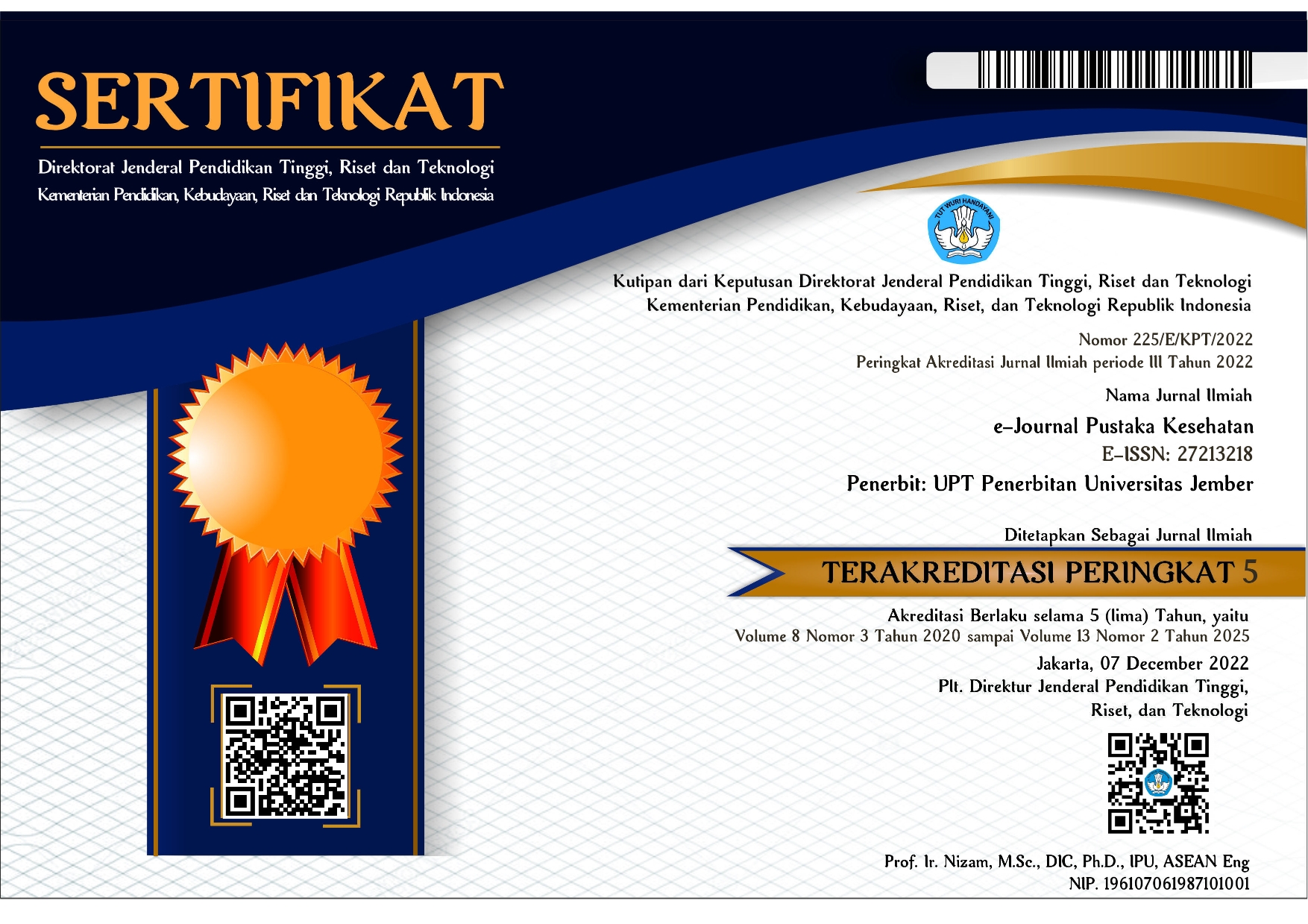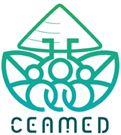Description of Parenting Self-Efficacy in Mothers with Infants Age 0-6 Months at Panti Village, Panti District, Jember Regency
Abstract
Infancy (0-6 months) is a golden period as well as a critical period because at this time a process of rapid growth and development occurs and requires a lot of care and precision in the parenting process. One of the factors that can affect the care of infants is parenting self-efficacy. Parenting self-efficacy is a central cognitive element in parenting competence in the form of beliefs that refer to feelings in their role as parents or perceptions of parents' abilities to have a positive influence on children's behavior and development.This research was to identify the description of parenting self-efficacy in mothers of infants aged 0-6 months. The research design was an analytical descriptive research. The technique of collecting data performed was total sampling by taking 90 mother respondents of infants aged 0-6 months. Data were collected using a PMP S-E and MSPSS questionnaire. The results of the study shows that mothers who have infants aged 0-6 months in Panti Village, Panti District, Jember Regency have high parenting self-efficacy as many as 76 people (84.4%). This shows that mothers have high confidence in their ability to provide care for their infants.
References
[2] Shrestha S, Adachi K, Petrini MA, Shrestha S, Rana Khagi B. Development And Evaluation Of A Newborn Care Education Programme In Primiparous Mothers In Nepal. Midwifery [Internet]. 2016;42:21–8. Tersedia pada: http://dx.doi.org/10.1016/j.midw.2016.09.006
[3] Mahardhika F, Malonda NS., Kapantow NH. Hubungan Antara Usia Pemberian Makanan Pendamping Asi (Mp-Asi) Pertama Kali Dengan Status Gizi Anak Usia 6-12 Bulan Di Wilayah Kerja Puskesmas Kombos Kota Manado. Kesmas J Kesehat Masy Univ Sam Ratulangi. 2018;7(3).
[4] Khodijah, Tri WF, Dessie W. Kepercayaan Diri Menjadi Ibu Berhubungan Dengan Status Gizi Anak Usia 0-12 Bulan. Bhamada J Ilmu dan Teknol Kesehat [Internet]. 2018;8(2). Tersedia pada: http://ojs.stikesbhamadaslawi.ac.id/index.php/jik/article/view/25
[5] Kementerian Kesehatan RI. Profil Kesehatan Indonesia Tahun 2019. Jakarta: Kementerian Kesehatan RI; 2020.
[6] Badan Pusat Statistik. Profil Kesehatan Ibu Dan Anak 2020. Vol. 53. Jakarta: Badan Pusat Statistik; 2020.
[7] TNP2K. 100 Kabupaten/Kota Prioritas untuk Intervensi Anak Kerdil (Stunting). Vol. 1, Sekretariat Wakil Presiden RI. Jakarta: Tim Nasional Percepatan Penanggulangan Kemiskinan; 2017.
[8] Ainy FN. Hubungan Sanitasi Lingkungan Keluarga dengan Kejadian Stunting pada Balita di Wilayah Kerja Puskesmas Panti Kabupaten Jember. Universitas Jember; 2020.
[9] Horst K Van Der, Sleddens EFC. Parenting Styles , Feeding Styles And Food- Related Parenting Practices In Relation To Toddlers ’ Eating Styles : A Cluster-Analytic Approach. PLoS One. 2017;12(5):1–16.
[10] Septikasari M. Status Gizi Anak dan Faktor Yang Mempengaruhi. Yogyakarta: UNY Press; 2018.
[11] Coleman PK, Karraker KH. Parenting Self-Efficacy Among Mothers of School-Age Children : Conceptualization , Measurement , and Correlates *. Fam Relations An Interdiscip J Appl Fam Stud. 2000;49(1):13–24.
[12] Rachmawati ANN, Hastuti D. Parental Self-Efficacy dan Praktik Pengasuhan Menentukan Perilaku Agresif Anak Usia Prasekolah. J Ilmu Kel dan Konsum. 2017;10(3):227–37.
[13] Goto A, Vinh NQ, Van NTT Van, Phuc TH, Minh PN, Yabe J, et al. Maternal Confidence in Child Rearing : Comparing Data from Short-term Prospective Surveys Among Japanese and Vietnamese Mothers. Matern Child Health J. 2008;12:613–9.
[14] Fitri AA. Hubungan Tingkat Pengetahuan Ibu Postpartum dengan Parenting Self-Efficaccy dalam Merawat Bayi Berat Badan Lahir Rendah Di Malang. Universitas Brawijaya; 2020.
[15] Sekarhani N. Hubungan Antara Dukungan Sosial dan Maternal Self-Efficacy pada Ibu Primipara. Universitas Islam Indonesia; 2019.
[16] Crugnola CR, Ierardi E, Gazzotti S, Albizzati A. Motherhood in adolescent mothers: Maternal attachment, mother-infant styles of interaction and emotion regulation at three months. Infant Behav Dev [Internet]. 2014;37(1):44–56. Tersedia pada: http://dx.doi.org/10.1016/j.infbeh.2013.12.011
[17] Syeba E. Hubungan antara Usia Ibu dengan Parenting Self-Efficacy di Kabupaten Banyuwangi [Internet]. Universitas Katolik Widya Mandala; 2019. Tersedia pada: http://repository.wima.ac.id/id/eprint/20491/
[18] Fajriyah N, Qodariah L, Fransiska M M. Komparasi Parenting Self-Efficacy Pada Ibu Usia Remaja Dan Dewasa Di Kecamatan Banjarharjo Brebes. J Psychol Sci Prof. 2019;3(1):12.
[19] Mahastuti D. Pola Pengasuhan Yang Berdasar Budaya, Agama Dan Neurosains. J Psikologo Islam Al-Qalb [Internet]. 2016;(January). Tersedia pada: www.kpai.go.id
[20] Suyami, Zukhri S, Suryani L. Pola Asuh Orang Tua Dengan Tingkat Perkembangan Sosial Anak Usia 1 - 3 Tahun Di Desa Buntalan Klaten. Mot J Ilmu Kesehat [Internet]. 2009;1(6):1–17. Tersedia pada: http://jurnal.stikesmukla.ac.id/index.php/motor/article/view/247
[21] Sari DP. Perbandingan Efikasi Diri Dalam Pengasuhan Anak Pada Ibu Disabilitas Comparison of Parenting Self Efficacy Between Mothers With and Without Children With Disabilities. J Ilm Psikol. 2020;22(1):38–45.
[22] Larasati NA, Qodariah L, Joefiani P. Studi Deskriptif Mengenai Parenting Self-Efficacy Pada Ibu Yang Memiliki Anak Dengan Autism Spectrum Disorder. J Psychol Sci Prof. 2021;5(1):1–10.
[23] Astutiningrum D, Bayuana Y, Herniyatum. Dukungan Suami Terhadap Parenting Self Efficacy Pada Ibu Postpartum Dengan Sectio Caesarea. INVOLUSI J Ilmu Kebidanan Sekol Tinggi Ilmu Kesehat Muhammadiyah Klaten. 2021;11(2):52–8.
[24] Pangestu ID. Parenting Self Efficacy Ayah dan Ibu pada Pasangan Suami Istri yang Menikah Dini. Cognicia [Internet]. 2020;8(2):262–76. Tersedia pada: http://ejournal.umm.ac.id/index.php/cognicia
[25] Mafaza, Anggreiny N, Alfara H. Parenting Self Efficacy pada Orang Tua dengan Tuna Netra. J Ilmu Perilaku. 2018;1(2):110.
[26] Evelyn, Savitri LSY. Pengaruh Dukungan Sosial Terhadap Pola Pengasuhan Orang Tua Anak Berusia Middle Childhood dari Keluarga Miskin. J Psikol Ulayat. 2015;2(2):434–49.
[27] Trisetiyaningsih Y, Susanti D. Hubungan Dukungan Keluarga Dengan Parenting Self Efficacy Pada Ibu Postpartum Di Kabupaten Bantul. Med Respati J Ilm [Internet]. 2021;16(2):79–86. Tersedia pada: http://medika.respati.ac.id/index.php/Medika/article/view/303
[28] Hidayati ZK, Sawitri DR. Hubungan Antara Dukungan Sosial Dengan Maternal Self-Efficacy Pada Anak Autism Spectrum Disorder (Asd). Empati. 2017;6(2):10–4.
[29] Suzuki S. The Effects of Marital Support, Social Network Support, and Parenting Stress on Sarenting: Self-Efficacy Among Mothers of Young Children in Japan. J Early Child Res. 2010;8(1):40–66.
[30] Ilda ZA, Rustina Y, Syahreni E. Peningkatan Interaksi Ibu-Bayi Dan Kepercayaan Diri Ibu: Efek Pelibatan Ibu Dalam Perawatan Bayi Prematur Di Ruang Perinatologi. J Keperawatan Indones. 2013;16(3):168–75.
[31] Arnita Y, Tahlil T, Amalia R. Faktor-faktor yang Berkontribusi dengan Interaksi Ibu-Bayi: Sebuah Literature Review. Idea Nurs J. 2020;11(2):18–28.
[32] Alfons OL, Goni SYVI, Pongoh H. Peran Ibu Rumah Tangga Dalam Meningkatkan Status Sosial Keluarga Di Kelurahan Karombasan Selatan Kota Manado. Acta Diurna Komun [Internet]. 2017; Tersedia pada: https://ejournal.unsrat.ac.id/index.php/actadiurnakomunikasi/article/view/16572

This work is licensed under a Creative Commons Attribution-ShareAlike 4.0 International License.
e-Journal Pustaka Kesehatan has CC-BY-SA or an equivalent license as the optimal license for the publication, distribution, use, and reuse of scholarly work. Authors who publish with this journal retain copyright and grant the journal right of first publication with the work simultaneously licensed under a Creative Commons Attribution-ShareAlike 4.0 International License that allows others to share the work with an acknowledgment of the work's authorship and initial publication in this journal.











